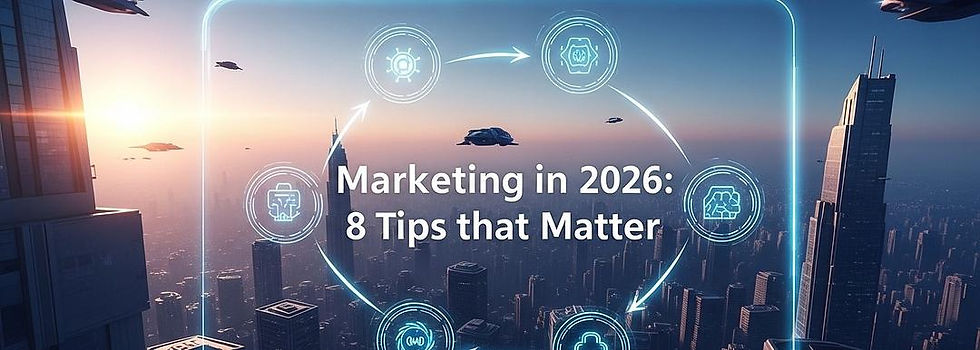AI Trends in the Workplace: Shaping the Future of Work
- AI Officer

- Mar 21, 2025
- 3 min read
Updated: Sep 11, 2025
The Dawn of AI in the Workplace
Artificial intelligence (AI) is more than just a buzzword, it’s the driving force shaping the future of work. Imagine a workplace where routine tasks no longer bog you down, creativity blossoms, and decisions are backed by data-driven insights. This isn’t science fiction. It’s the reality that AI trends in the workplace are creating right now.
Industries across the board, from healthcare and finance to retail and manufacturing, are harnessing AI's potential. Let’s embark on a journey to explore how AI trends are transforming the workplace, propelling us into a future filled with possibilities.

AI Trends Impacting the Workplace
1. AI Automation: Redefining Routine
AI automation is freeing employees from mundane tasks. Gone are the days of endless paperwork and repetitive processes holding back productivity. Organizations like Amazon leverage robotic process automation (RPA) in their warehouses, significantly boosting efficiency and precision.
2. AI-Driven Decision-Making: Empowering Leaders
Business leaders are making informed decisions faster than ever, thanks to AI-driven analytics. Take Google, for example, who utilizes AI to predict employee turnover and make data-informed HR decisions, ensuring they retain top talent. AI trends in the workplace are empowering leaders.
3. Generative AI: Sparking Creativity
In the creative realm, generative AI is a game-changer. Tools like OpenAI’s GPT transform how content is created, allowing professionals to brainstorm ideas, draft marketing strategies, or even generate art, unleashing a new wave of innovation.
4. AI in Recruitment: Finding the Right Fit
AI is revolutionizing recruitment by analyzing candidate data to identify the best fits for roles. Companies like Unilever are using AI to streamline their hiring processes, cutting down on recruitment time and costs.
5. Personalized AI Learning Tools: Tailoring Employee Growth
Personalized learning paths powered by AI are reshaping employee development. Platforms like Coursera use AI to recommend courses, enabling employees to learn at their own pace, enhancing skill sets tailored to emerging job roles.
Challenges and Opportunities
Yet, navigating the AI landscape isn’t without its challenges. Businesses face hurdles like aligning the workforce with AI adoption, addressing ethical considerations, and wading through a sea of evolving regulations. However, AI trends in the workplace provide opportunities for those who embrace them.
By becoming adept at utilizing AI tools, professionals can ensure their skills remain in demand. Remember: AI isn’t replacing jobs, it’s helping people be better at them.
How Businesses Can Prepare
1. Upskilling Employees
Invest in training programs that focus on AI literacy. Companies like IBM offer AI certifications to equip their workforce with essential AI skills.
2. Implementing AI Responsibly
Ethical AI use is paramount. Develop clear guidelines and policies ensuring AI is used transparently and fairly across the organization.
3. Applying AI Tools Widely
The future belongs to those who can orchestrate AI resources. Encourage your team to adopt AI tools to improve operations and decision-making processes.
Conclusion
The transformative power of AI trends is undeniable. For businesses and professionals, embracing these trends is not merely an option but a necessity to thrive in the futuristic landscape. By staying informed and agile, you can master AI and secure your career, creating a win-win where technology and talent go hand in hand.
FAQs
What are the top AI trends shaping the future of work?
Key AI trends reshaping the workplace include automation, AI-driven analytics, generative AI, AI in recruitment, and personalized AI learning tools.
How can businesses adapt to rapid AI advancements?
To adapt, businesses should focus on upskilling employees, adopting AI tools beneficial to their operations, and staying abreast of AI-related regulations.
Will AI replace human jobs?
AI is more likely to augment than replace human roles, enhancing productivity and creating new opportunities for advanced problem-solving and creativity.



Comments